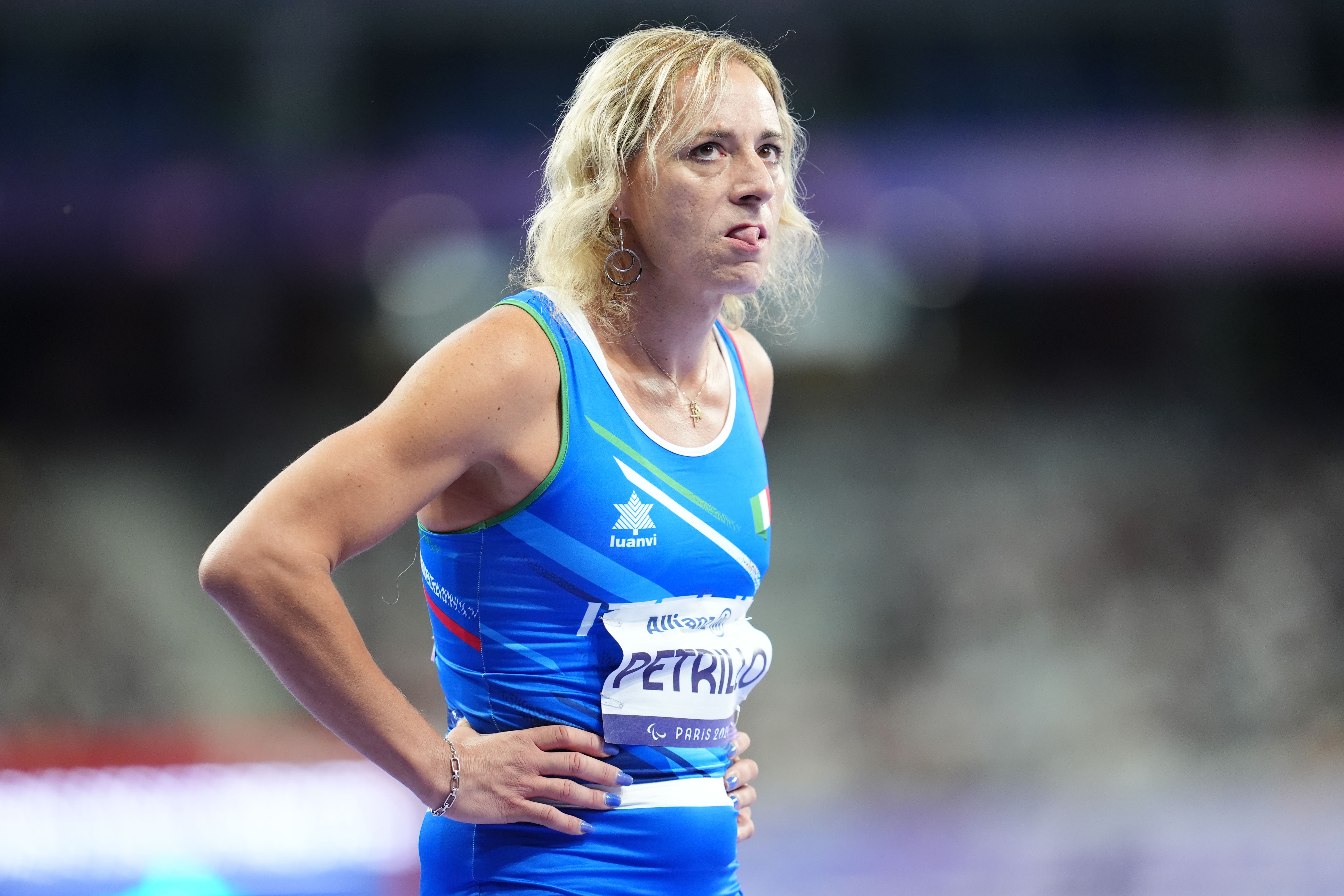Transgender athlete Valentina Petrillo fails to reach women’s T12 400m final
The 50-year-old visually-impaired Italian, who transitioned in 2019, was sixth fastest overall in Monday evening’s two semi-finals.

Your support helps us to tell the story
From reproductive rights to climate change to Big Tech, The Independent is on the ground when the story is developing. Whether it's investigating the financials of Elon Musk's pro-Trump PAC or producing our latest documentary, 'The A Word', which shines a light on the American women fighting for reproductive rights, we know how important it is to parse out the facts from the messaging.
At such a critical moment in US history, we need reporters on the ground. Your donation allows us to keep sending journalists to speak to both sides of the story.
The Independent is trusted by Americans across the entire political spectrum. And unlike many other quality news outlets, we choose not to lock Americans out of our reporting and analysis with paywalls. We believe quality journalism should be available to everyone, paid for by those who can afford it.
Your support makes all the difference.Transgender athlete Valentina Petrillo said it is legitimate to question her participation in women’s sport following her failure to qualify for the Paralympic T12 400m final.
The 50-year-old Italian, who transitioned in 2019, was sixth fastest overall in Monday evening’s two semi-finals to fall short of the medal race in Paris.
She appeared overwhelmed at her post-race interviews, having clocked a personal best time of 57.58 seconds at Stade de France.
Naples-born Petrillo, who previously won 11 national titles in the men’s category as a married father of two, also called for an end to prejudice and discrimination, saying “people still die for being trans”.
I think that question is legitimate. It’s normal.
“Listen, I’m the first to ask myself these questions,” she told Italian television channel Rai 1 when asked about the criticism she has faced.
“Before, when I decided not to run anymore because I no longer felt like running as a male, I asked myself these questions. I said, ‘What if you, as a biological woman, saw Valentina on the track?’
“I think that question is legitimate. It’s normal.
“We are born in a society that leads us to make certain speeches, but during this journey I learned many things, and then I actually understood where the problem lies.
“The problem is an information problem. So we must talk about these things, we must not be afraid.
“We must ask ourselves questions, the world of sport must also question us.
“Certainly, the word inclusion must be at the forefront of the world of sport, because a solution must be found for everyone.”
According to the International Paralympic Committee, visually-impaired Petrillo is the second transgender Paralympian.
Dutch discus thrower Ingrid van Kranen, who died in 2021, competed at Rio 2016.
Petrillo, who posted a time of 58.35 secs in the first round of the 400m on Monday morning, is scheduled to run again on Friday in the T12 200m.
“The hate, unfortunately, accompanies the lives of people like me,” she said.
“It is not right that we suffer discrimination and prejudice simply because we exist.
“Unfortunately in the world, people still die for being trans.
“There is a lot of fear. I embody diversity, and I hope through my message that we can normalise what this phenomenon is.”
Petrillo was diagnosed with Stargardt disease – a genetic eye condition – aged 14.
She previously expressed hope of receiving “love” in France, while saying it was “only fair” she was allowed to compete.
I'm a little down, but I hope my son will be proud of me.
Currently, there is no unified position towards transgender inclusion, with the IPC allowing international sport governing bodies to set their own policies.
Under World Para Athletics’ rules, an athlete who is legally recognised as a woman is eligible to compete in the category for which their impairment qualifies them.
“I tried my best until the end, I didn’t make it, I missed the last straight line,” she said following her semi-final.
“I pushed more than I did this morning and I tried my best.
“I’m a little down, but I hope my son will be proud of me. This is important to me because I am a trans dad, not the dad that everyone dreams of. But I hope he will be proud of me.”